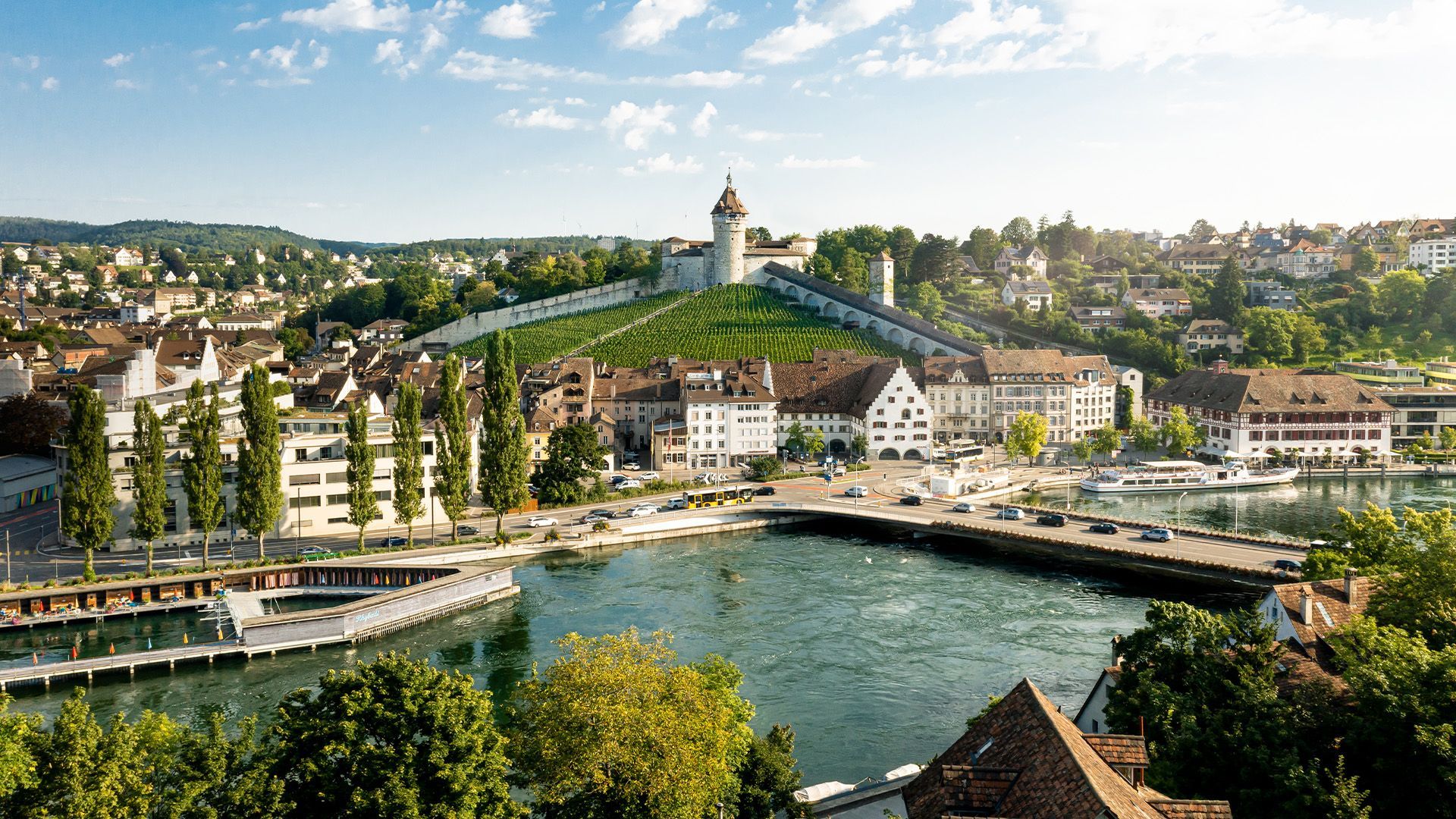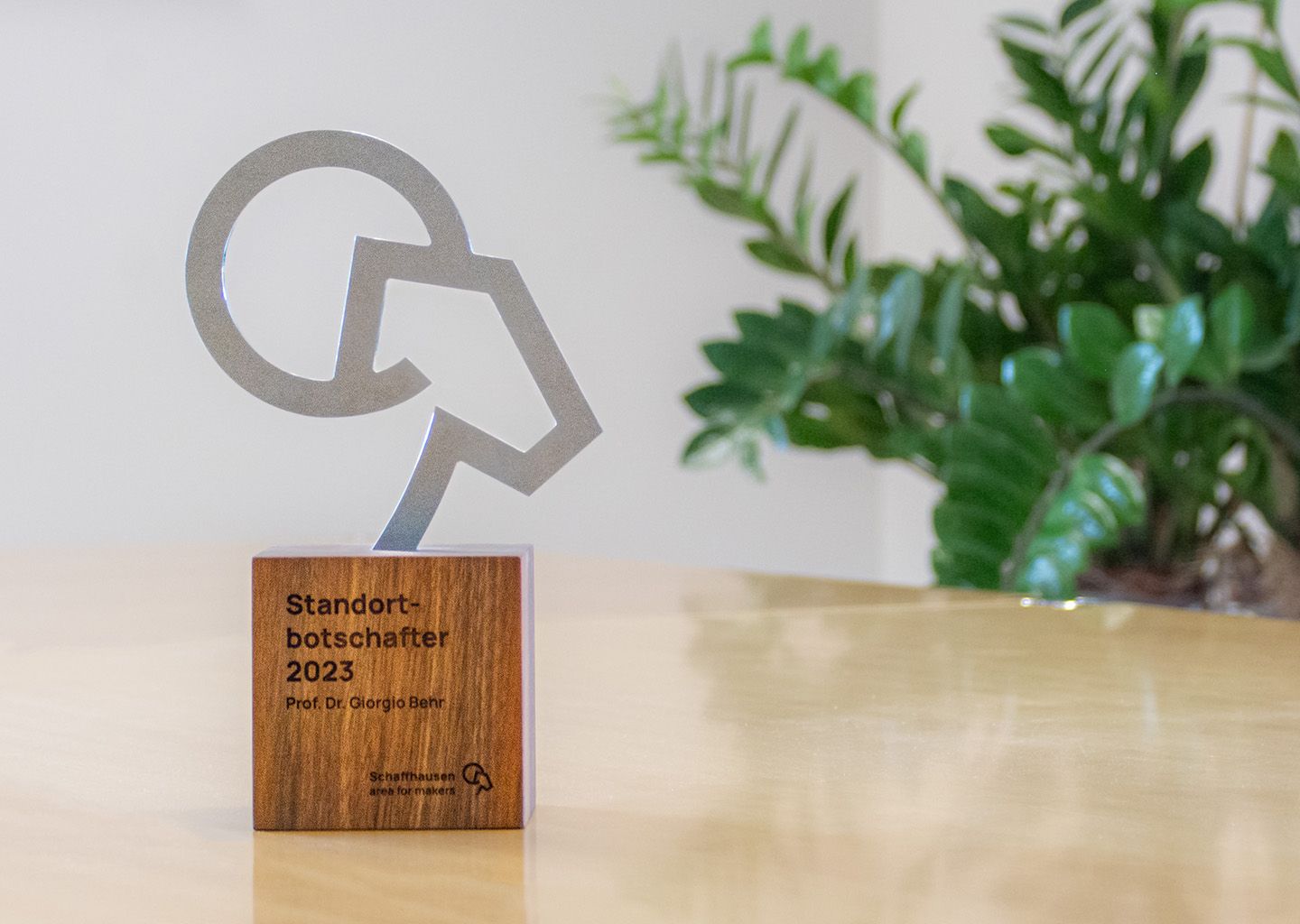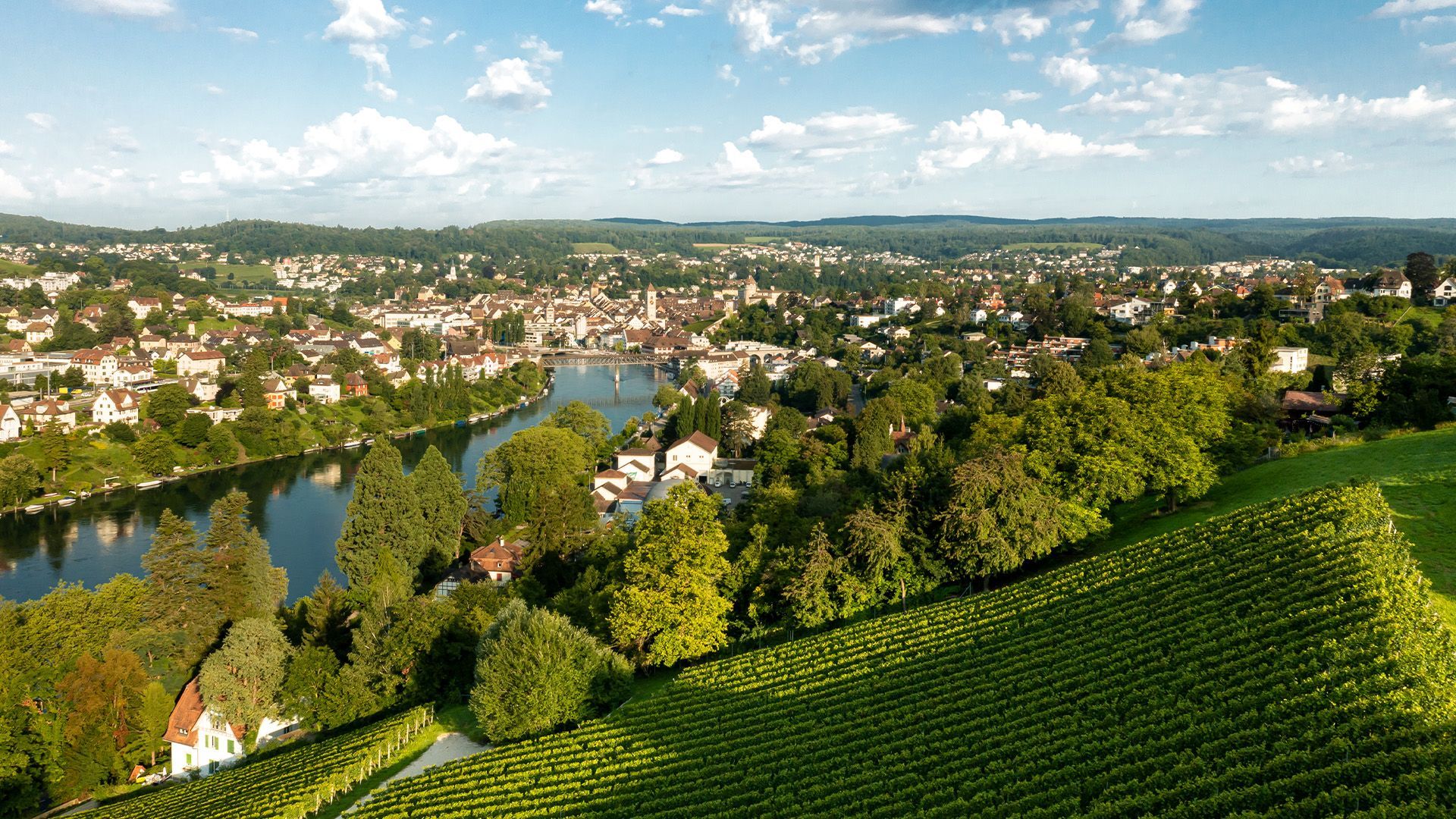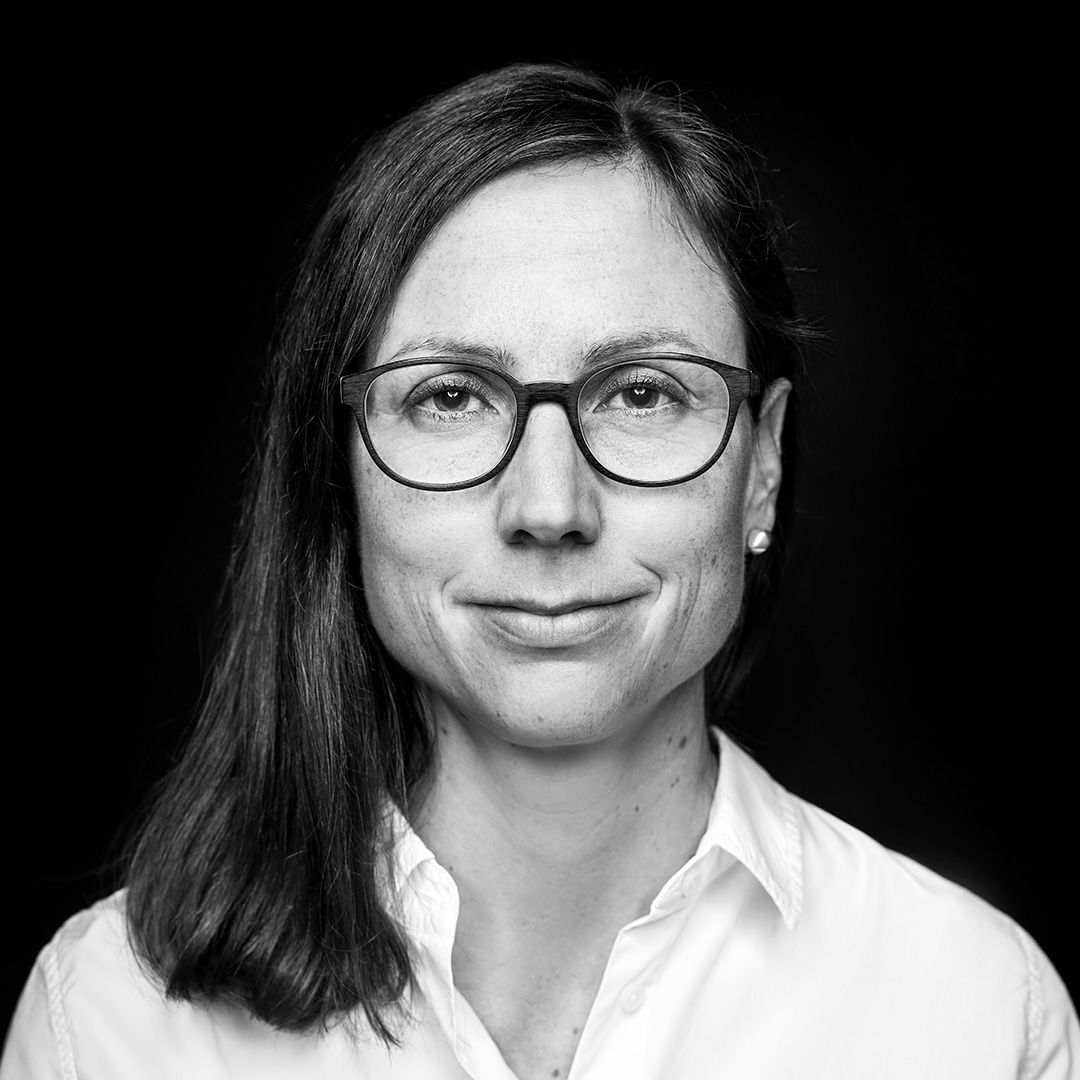Shaping the educational path
The main role in education is training lies with parents. They ensure that their kids are enrolled in school and manage their daily school life. Parents are the key to academic success!
School system
In Switzerland, education is managed by the cantons, meaning there are as many school systems as there are cantons. A change of residence can therefore also mean a change in the school system. Compulsory education is firmly established in the country. After completing secondary education I, young people have numerous options, whether in vocational education or at a university. In the Schaffhausen area, public schooling is common, although private schools also exist. State schools provide excellent foundational education, which serves as a very good basis for the future. Education up to secondary II is free of charge, while school materials are charged from secondary II onward. Discover the variety and opportunities within the education system in Schaffhausen!
Kindergarten
Playful learning at an early age! Every child is required to attend kindergarten for the two years before starting school. Kindergarten in Switzerland is the first step into the world of education for the youngest children. Here, children experience playful learning and social interactions that promote their development. Kindergarten lays the foundation for a lifelong learning journey by sparking curiosity and teaching fundamental skills.
Primary School
Primary school provides the basic academic knowledge. Children who are six years old before August 1st are required to start school at the beginning of the new school year (after the summer holidays). Primary school lasts for six years. Afterward, students attend either the lower secondary school (Realschule) or the secondary school (Sekundarschule).
Secondary Education I-III
Secondary Education I: Lower Secondary Level
Secondary Education II: Vocational Training
Secondary school provides an excellent foundational education and teaches at least two foreign languages. It lasts for three years. Attending secondary school is a requirement for transferring to a higher school (Mittelschule). The real school (Realschule) is the continuation of primary school and places less demanding requirements on students compared to secondary school. Realschule also lasts three years.
Vocational education holds a high value in Switzerland. Nearly 300 different professions can be learned in two, three, or four years of training. The professional and educational quality of vocational training is among the best in the world. The training ends with an exam and the acquisition of a nationally recognized diploma. In the case of a two-year apprenticeship, the training ends with a federal vocational certificate (eidg. Berufsattest). To ensure successful training, companies must adhere to binding educational regulations and training plans that are available for each specific profession. These training guidelines are issued by the Federal Department of Economic Affairs. The implementation of vocational education is the responsibility of the cantons and is overseen by the cantonal vocational education offices. In order for a company to train apprentices, it must meet specific personnel and operational requirements.
Secondary Education II: Vocational Upper Secondary School
The vocational upper secondary school (Berufsmittelschule) offers motivated apprentices an additional education alongside or after their vocational training. It provides a broader educational experience beyond the mandatory vocational education. The Berufsmittelschule is open to all students who meet the entrance requirements. Upon completing the Berufsmittelschule, students earn a Berufsmaturität (vocational maturity), which grants access to universities of applied sciences (Fachhochschulen) and other advanced education programs.
Secondary Education II: Handelsmittelschule
The Handelsmittelschule (HMS) leads to the eidgenössisches Handelsdiplom (federal diploma in commerce). It is a three-year full-time vocational education program that builds on the knowledge from the third year of secondary school. After completing the exams for the Handelsdiplom, students undertake a one-year internship in a company. Following this practical year, students take supplementary exams to earn the Berufsmaturität (vocational maturity), which grants direct access to universities of applied sciences without further exams. Upon successful completion of the program, graduates receive both the Berufsmaturitätsausweis (vocational maturity certificate) and the eidgenössisches Fähigkeitszeugnis (federal diploma of competence) as a Kaufmann/Kauffrau (business professional).
Secondary Education II: High School Diploma & Fachmittelschule
The Kantonsschule Schaffhausen is the only upper secondary school in the canton. It leads to the eidgenössisch anerkannte Matur (federally recognized maturity diploma), which is equivalent to the German Abitur, and lasts for four years. Upon passing the Matur exams, students are eligible to enroll in all faculties at Swiss universities and higher education institutions. The Fachmittelschule (FMS) leads to the Fachmittelschulausweis (specialized secondary diploma) and the Fachmatur (specialized maturity). After three years of general education (10th to 12th grade), students obtain the Fachmittelschulausweis, which grants access to studies at Higher Vocational Schools (HF) or to corresponding professions in the tertiary sector. The Fachmaturitätszeugnis (specialized maturity certificate) is awarded after completing an internship (usually one year) and passing an exam. It allows students to pursue studies at Universities of Applied Sciences (FH) in their specific field of expertise.
Tertiary Level: Higher Vocational School & Further Education
There are numerous further education opportunities after completing an apprenticeship. Various educational institutions offer training programs that provide profession-specific knowledge. Additionally, it is possible to pursue a part-time or full-time program at a Higher Vocational School (HF), which typically lasts for three years.
Tertiary Level: Pädagogische Hochschule Schaffhausen
The PHSH (Pädagogische Hochschule Schaffhausen) offers two complete degree programs for teacher training: one for kindergarten and lower primary education, and one for primary education. As part of the basic studies, students can also complete parts of the training for Secondary School I in Schaffhausen. Future teachers are prepared for their profession, and upon completion, they are awarded a Bachelor of Arts in Primary or Preprimary Education, along with a teaching diploma. The program for primary and preschool education lasts three years, divided into six semesters, with internships and additional courses taking place during the interim semesters.
Tertiary Level: Hochschule Schaffhausen
The Hochschule Schaffhausen (HSSH) offers bachelor's and master's degree programs in Business Administration, Economic Psychology, and Sports and Event Management. The program offerings will continue to expand in the coming years. The university employs a Blended Learning approach, where semesters are divided into longer, virtually supported self-learning phases and intensive on-site classroom sessions in Schaffhausen. This flexible model allows students to maintain their professional careers or pursue elite sports alongside their academic studies.
Tertiary Level: Universitäten und Hochschulen
Over ten Swiss Universities of Applied Sciences (Fachhochschulen) offer degree programs in fields such as Technology, Business, Design, and more. Thanks to excellent public transport connections, various universities and universities of applied sciences in the Zurich/St. Gallen area, as well as institutions in neighboring countries, are easily accessible. Swiss university degrees are internationally recognized, providing graduates with opportunities worldwide.
The International School of Schaffhausen (ISSH) offers a world-class, internationally recognized education for students. This full-day school supports children on their educational journey, from daycare through primary school and secondary school to the International Baccalaureate (IB) diploma. As an English-speaking and bilingual, certified IB World School, ISSH follows the international curriculum of the International Baccalaureate Organization. Founded in 1999 with the goal of providing more than just an education, the school fosters a holistic approach with small classes, modern infrastructure, and a historic school building. It aims to develop students both intellectually and characteristically in an inspiring school community.
Private School: International School of Schaffhausen
Private School: Stadtrandschule Schaffhausen
The Stadtrandschule in the urban district of the Stahlgiesserei serves as a dynamic learning and living space for children and young people from the first to the ninth grade. At Stadtrandschule, the diversity of students is seen as an opportunity for learning and personal development. The school embraces this diversity, fostering an inclusive environment where every child can grow and thrive through personalized support and collaborative learning experiences.
Private School: Waldorfschule Schaffhausen
The Waldorf School of Schaffhausen offers classes from Kindergarten to 5th grade, as well as playgroups and a parent-child group. The daily life at the school is characterized by three equally important areas that complement each other and provide each child with an individual approach to learning content: Craft and movement, knowledge and understanding, creativity and experience.
There is more


Schaffhausen newsletter
New to Schaffhausen or been here awhile? Stay up to date with our newsletter!





